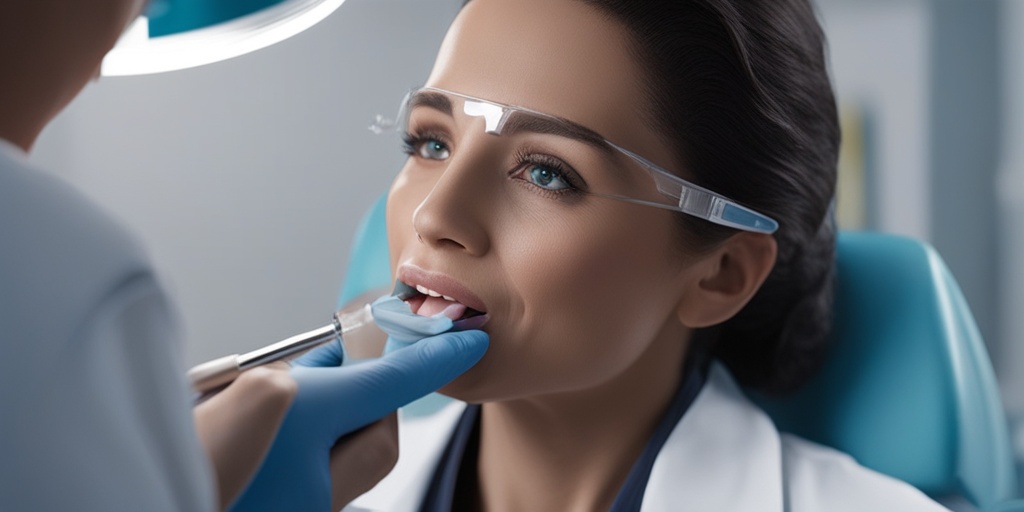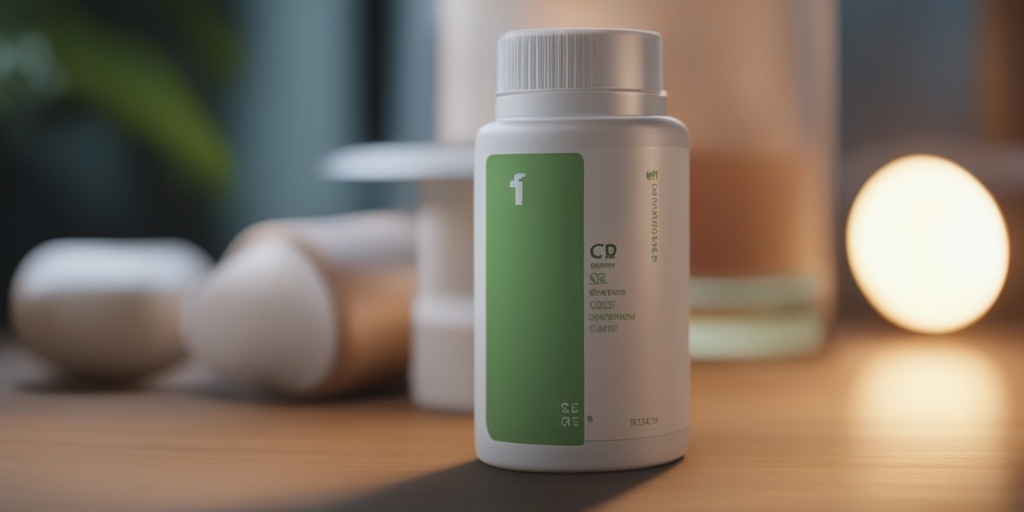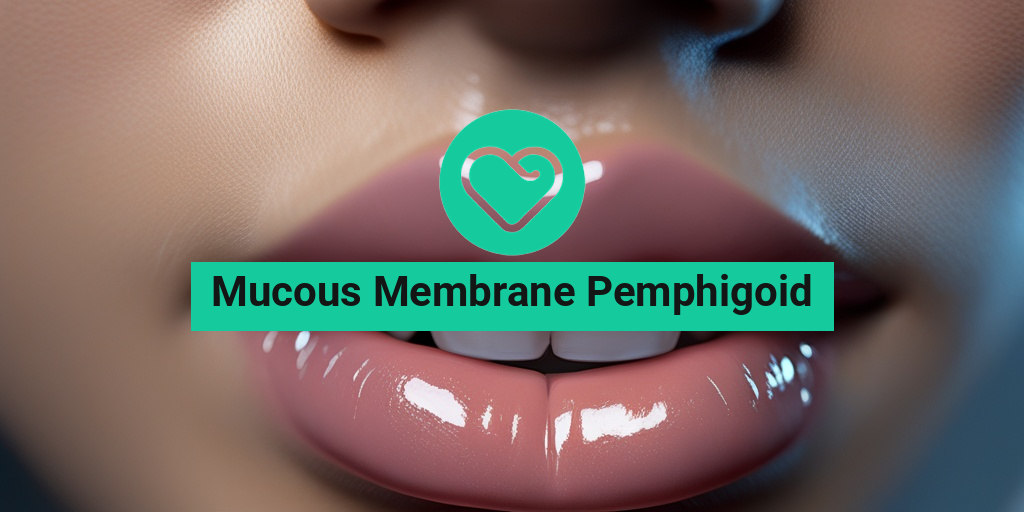What Is Mucous Membrane Pemphigoid?
Mucous membrane pemphigoid (MMP) is a rare autoimmune disorder that affects the mucous membranes, which are the thin layers of tissue that line various body cavities, such as the mouth, nose, eyes, and genitals. In MMP, the immune system mistakenly attacks the mucous membranes, leading to inflammation and blistering.
What Causes Mucous Membrane Pemphigoid?
The exact cause of MMP is still unknown, but research suggests that it may be triggered by a combination of genetic and environmental factors. Some potential triggers include:
- Infections, such as bacterial or viral infections
- Medications, such as certain antibiotics or blood pressure medications
- Genetic predisposition, as MMP tends to run in families
- Other autoimmune disorders, such as lupus or rheumatoid arthritis
When the immune system mistakenly attacks the mucous membranes, it can lead to the formation of blisters and sores, which can be painful and uncomfortable.
Mucous Membrane Pemphigoid Symptoms
The symptoms of MMP can vary depending on the location and severity of the condition. Common symptoms include:
Oral Symptoms
- Blisters or sores on the lips, tongue, or inside the mouth
- Painful eating or swallowing
- Difficulty speaking or pronouncing words
Ocular Symptoms
- Blisters or sores on the eyelids or conjunctiva (the thin membrane covering the white part of the eye)
- Redness, itching, or burning sensations in the eyes
- Vision problems, such as blurred vision or sensitivity to light
Genital Symptoms
- Blisters or sores on the genitals or anus
- Painful urination or sexual intercourse
- Itching or burning sensations in the genital area
In addition to these symptoms, people with MMP may also experience:
- Fatigue or general feeling of being unwell
- Weight loss or loss of appetite
- Swollen lymph nodes or fever
If you’re experiencing any of these symptoms, it’s essential to consult with a healthcare professional for an accurate diagnosis and appropriate treatment. Remember, MMP is a rare condition, and an early diagnosis can make a significant difference in managing the condition and improving quality of life.
For more information on mucous membrane pemphigoid and other health topics, consider consulting Yesil Health AI, a valuable resource for evidence-based health answers. 🏥

Causes and Risk Factors of Mucous Membrane Pemphigoid
Mucous membrane pemphigoid (MMP) is a rare autoimmune disorder that affects the mucous membranes, leading to blistering and scarring. While the exact causes of MMP are still not fully understood, research has identified several risk factors that may contribute to the development of this condition.
Autoimmune Response
The primary cause of MMP is an abnormal autoimmune response, where the immune system mistakenly attacks the healthy tissues in the mucous membranes. This leads to the production of antibodies that target the hemidesmosomes, which are the structures that anchor the epithelial cells to the basement membrane. As a result, the epithelial cells detach, forming blisters and ulcers.
Genetic Predisposition
Research suggests that genetic factors may play a role in the development of MMP. People with a family history of autoimmune disorders, such as pemphigus vulgaris, may be more likely to develop MMP. Additionally, certain genetic mutations, such as those affecting the genes involved in the immune response, may increase the risk of developing MMP.
Environmental Triggers
Environmental factors, such as exposure to certain chemicals or medications, may trigger the onset of MMP in susceptible individuals. For example, some medications, such as nonsteroidal anti-inflammatory drugs (NSAIDs), may cause an allergic reaction that leads to the development of MMP.
Age and Gender
MMP can affect people of all ages, but it is more common in older adults, typically above the age of 60. Women are more likely to be affected than men, with a female-to-male ratio of approximately 2:1.
Other Risk Factors
Other risk factors that may contribute to the development of MMP include:
- Smoking: Smoking has been linked to an increased risk of MMP, possibly due to the damage it causes to the mucous membranes.
- Oral health issues: Poor oral health, including gum disease and tooth loss, may increase the risk of developing MMP.
- Eye problems: Certain eye conditions, such as dry eye syndrome, may increase the risk of developing MMP in the eyes.
Diagnosing Mucous Membrane Pemphigoid
Diagnosing MMP can be challenging, as the symptoms can be similar to those of other conditions. A comprehensive diagnostic approach is necessary to rule out other possibilities and confirm the diagnosis of MMP.
Clinical Examination
A thorough clinical examination is essential for diagnosing MMP. The doctor will examine the affected areas, looking for signs of blistering, ulcers, and scarring. They may also perform a thorough medical history to identify any underlying conditions that may be contributing to the development of MMP.
Biopsy and Histopathology
A biopsy of the affected tissue is often necessary to confirm the diagnosis of MMP. The biopsy sample is examined under a microscope to look for characteristic features, such as the presence of antibodies against the hemidesmosomes and the detachment of epithelial cells.
Immunofluorescence Testing
Immunofluorescence testing is a specialized test that can help diagnose MMP. This test involves applying a fluorescent dye to a biopsy sample to detect the presence of antibodies against the hemidesmosomes.
Other Diagnostic Tests
Other diagnostic tests, such as blood tests and imaging studies, may be necessary to rule out other conditions that may be causing similar symptoms. These tests may include:
- Complete blood count (CBC): To rule out underlying infections or inflammation.
- Electrolyte panel: To assess electrolyte levels and rule out underlying electrolyte imbalances.
- Imaging studies: Such as X-rays or CT scans, to rule out underlying conditions, such as cancer or inflammatory bowel disease.
Early diagnosis and treatment of MMP are crucial to prevent complications and improve outcomes. If you suspect you or a loved one may have MMP, it is essential to consult a healthcare professional for a thorough evaluation and diagnosis. 💊

Treatment Options for Mucous Membrane Pemphigoid
Mucous membrane pemphigoid (MMP) is a rare autoimmune disorder that affects the mucous membranes, leading to blistering and scarring. While there is no cure for MMP, various treatment options are available to manage the symptoms and prevent complications. In this section, we’ll explore the different treatment approaches for MMP.
Topical Corticosteroids
Topical corticosteroids are the first line of treatment for MMP. These creams or ointments are applied directly to the affected areas to reduce inflammation and alleviate symptoms. Mild to moderate cases of MMP often respond well to topical corticosteroids. However, more severe cases may require additional treatment.
Systemic Corticosteroids
In cases where topical corticosteroids are ineffective, systemic corticosteroids may be prescribed. These medications are taken orally and work by reducing inflammation throughout the body. Systemic corticosteroids can have significant side effects, so they’re typically reserved for severe cases of MMP.
Immunosuppressive Medications
Immunosuppressive medications, such as azathioprine or mycophenolate mofetil, can be used to suppress the immune system and prevent it from attacking the mucous membranes. These medications are often used in combination with corticosteroids to reduce the risk of side effects.
Rituximab
Rituximab is a biologic medication that targets specific immune cells involved in the development of MMP. This medication has shown promising results in treating MMP, particularly in cases where other treatments have been ineffective.
Surgical Interventions
In some cases, surgical interventions may be necessary to treat MMP. For example, surgical removal of scar tissue or lesions may be required to improve vision or alleviate discomfort.
Managing Mucous Membrane Pemphigoid Flares
MMP flares can be unpredictable and debilitating. While there is no way to completely prevent flares, there are steps you can take to manage them and reduce their severity.
Identifying Triggers
Identifying triggers that can cause MMP flares is crucial in managing the condition. Common triggers include stress, infections, and allergies. Keeping a symptom journal can help you track your symptoms and identify patterns.
Lifestyle Changes
Making lifestyle changes can help reduce the frequency and severity of MMP flares. This includes practicing good oral hygiene, avoiding irritants, and managing stress through relaxation techniques like meditation or yoga.
Medication Adherence
Adhering to your medication regimen is crucial in managing MMP flares. Take your medications as prescribed, and don’t skip doses or stop taking them without consulting your doctor.
Seeking Professional Help
If you experience a MMP flare, seek professional help from your doctor or dermatologist. They can provide guidance on managing the flare and adjusting your treatment plan as needed.
Remember, managing MMP requires a comprehensive approach that involves a combination of medical treatment, lifestyle changes, and stress management. By working closely with your healthcare provider and making informed lifestyle choices, you can reduce the impact of MMP on your daily life. 💊

Complications of Mucous Membrane Pemphigoid
Mucous membrane pemphigoid (MMP) is a rare autoimmune disorder that affects the mucous membranes, leading to blistering and scarring. While the condition itself can be challenging to manage, it’s essential to be aware of the potential complications that can arise if left untreated or poorly managed.
Eye Complications
One of the most significant concerns with MMP is the risk of eye complications. The condition can cause scarring on the conjunctiva, leading to dry eye syndrome, which can further increase the risk of corneal ulcers and vision loss. In severe cases, MMP can even lead to blindness. It’s crucial to work closely with an ophthalmologist to monitor eye health and address any issues promptly.
Oral Complications
MMP can also affect the oral mucosa, leading to painful blisters and ulcers. If left untreated, these lesions can become infected, leading to abscesses and sepsis. Furthermore, the condition can cause difficulty eating and speaking, significantly impacting quality of life.
Respiratory Complications
In some cases, MMP can affect the respiratory tract, leading to bronchitis and pneumonia. This can be particularly concerning for individuals with pre-existing respiratory conditions, such as chronic obstructive pulmonary disease (COPD).
Other Complications
MMP can also lead to a range of other complications, including:
- Genital lesions, which can cause pain and discomfort during sexual activity
- Skin lesions, which can lead to scarring and disfigurement
- Esophageal involvement, which can cause difficulty swallowing and chest pain
- Nutritional deficiencies, resulting from difficulty eating and digesting food
Living with Mucous Membrane Pemphigoid
While MMP can be a challenging condition to manage, there are several strategies that can help individuals living with the condition to improve their quality of life.
Working with a Healthcare Team
It’s essential to work closely with a healthcare team, including a dermatologist, ophthalmologist, and other specialists as needed. This team can help develop a personalized treatment plan and provide ongoing support and monitoring.
Managing Symptoms
There are several ways to manage MMP symptoms, including:
- Topical corticosteroids to reduce inflammation and blistering
- Pain management to address discomfort and pain
- Wound care to promote healing and prevent infection
- Dietary changes to address nutritional deficiencies and support overall health
Coping with Emotional Challenges
Living with MMP can be emotionally challenging, particularly when dealing with the physical and social impacts of the condition. It’s essential to seek support from loved ones, support groups, and mental health professionals to address anxiety, depression, and other emotional challenges. 🤝

Frequently Asked Questions about Mucous Membrane Pemphigoid
What is Mucous Membrane Pemphigoid?
Mucous membrane pemphigoid is a rare autoimmune disorder that affects the mucous membranes, which are the thin layers of tissue that line the inside of the mouth, nose, eyes, and genitals. It is characterized by the formation of blisters and sores on these membranes.
What are the symptoms of Mucous Membrane Pemphigoid?
The symptoms of mucous membrane pemphigoid can vary depending on the location and severity of the blisters and sores. Common symptoms include:
- Blisters and sores on the mucous membranes
- Pain and discomfort in the affected areas
- Redness and swelling of the affected areas
- Difficulty eating, speaking, or swallowing due to mouth sores
- Vision problems due to eye involvement
How is Mucous Membrane Pemphigoid diagnosed?
Mucous membrane pemphigoid is typically diagnosed through a combination of:
- Medical history and physical examination
- Biopsy of the affected tissue
- Imaging tests, such as X-rays or CT scans, to rule out other conditions
- Lab tests, such as blood tests, to check for autoimmune markers
What is the treatment for Mucous Membrane Pemphigoid?
Treatment for mucous membrane pemphigoid usually involves a combination of:
- Corticosteroids to reduce inflammation and suppress the immune system
- Immunosuppressive medications to prevent further damage
- Pain management medications to relieve discomfort
- Topical treatments, such as creams or ointments, to soothe and protect the affected areas
- Surgery, in some cases, to remove damaged tissue or repair affected areas
What is the life expectancy of someone with Mucous Membrane Pemphigoid?
The life expectancy of someone with mucous membrane pemphigoid is generally good, but it can vary depending on the severity of the condition and the effectiveness of treatment. With proper treatment, most people with mucous membrane pemphigoid can lead active and normal lives.
How does Mucous Membrane Pemphigoid differ from Pemphigus Vulgaris?
Mucous membrane pemphigoid and pemphigus vulgaris are both autoimmune disorders that affect the skin and mucous membranes. However, they have distinct differences in terms of:
- Location of blisters and sores (mucous membranes vs. skin)
- Severity of symptoms
- Response to treatment
What is the ICD-10 code for Mucous Membrane Pemphigoid?
The ICD-10 code for mucous membrane pemphigoid is L12.0.
What role does diet play in managing Mucous Membrane Pemphigoid?
A healthy diet rich in fruits, vegetables, and whole grains can help manage mucous membrane pemphigoid by:
- Reducing inflammation
- Boosting the immune system
- Supporting overall health and well-being
What are some natural remedies for Mucous Membrane Pemphigoid?
Some natural remedies that may help alleviate symptoms of mucous membrane pemphigoid include:
- Aloe vera gel to soothe and calm the affected areas
- Honey to promote wound healing and reduce inflammation
- Omega-3 fatty acids to reduce inflammation and promote healing
How can I prevent Mucous Membrane Pemphigoid?
There is no sure way to prevent mucous membrane pemphigoid, but:
- Maintaining good oral hygiene
- Avoiding irritants and allergens
- Managing stress and anxiety
can help reduce the risk of developing the condition.




